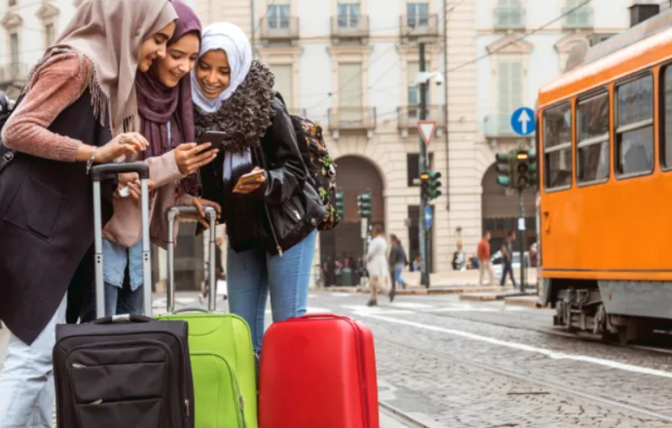
 "
"

 "
"

The Muslim travel market is one of the most lucrative and fastest growing markets in the world making up 13.4% of the world’s total travel expenditure.
Catering to Muslim travellers will undoubtedly strengthen the tourism industry of a destination or country. Destinations that provide adequate facilities for Muslims will be able to successfully attract more Muslim travellers, resulting in higher tourist arrivals and better tourism development.
The spend on travels that Muslims do, increased by 2.7% in 2019, from $189 billion in 2018 to $194 billion. With the impact of the COVID-19 crisis, Muslim spend on travel fell to $58 billion in 2020 but is expected to make recoveries to 2019 levels by 2023. Muslim consumer spending on travel is expected to grow at a 5-year CAGR of 1.4% from 2019 to 2024. This is a much faster than conventional tourism which sees a growth rate of only 3.8% in comparison. The world’s Muslim population itself is expected to be around 25% of the entire population by 2020 and will provide a wealth of opportunities to stakeholders in the tourism industry.
The pandemic brought the tourism industry, including Muslim-friendly travel, to a grinding halt, with tourism being one of the most adversely affected economic segments due to travel restrictions. Governments have scrambled to support airlines and the broader tourism ecosystem while struggling to strike a balance between preventing further COVID-19 outbreaks and stimulating the economy. For many countries, tourism is a primary foreign currency earner, and the loss of inflowing cash has had a significant impact. This extends to pilgrimage, with Saudi Arabia canceling hajj and umrah in 2020. Another setback for the sector was the rescheduling of the Tokyo Olympics to 2021, with suppliers in Malaysia, who were intended to cater for Muslim athletes at the event, set to lose some $300 million in potential revenues. Investment in the sector has nevertheless continued, although at a less confident rate than before the pandemic. Indonesia-based Traveloka has raised $250 million in additional funding, and UAE-based travel-tech startup Hotel Data Cloud secured $350,000 in seed funding.
While there is a diminished outlook for tourism, with the expectation being that the sector will adapt to the ‘new normal’ over the next year or two, a much-needed boost was given to the sector at the beginning of 2020 with the release of the Standards and Metrology Institute for Islamic Countries’ (SMIIC) Halal Tourism Services standard. This standard provides guidelines for managing halal tourism facilities and services
Tourism in general has always played a vital role in economic development. The global travel and tourism industry generates several thousand billion U.S. Dollars in revenue each year – with international tourism for the year 2012 being valued as much as 1,075 billion U.S. Dollars. This includes the expenditure of tourists for transport as well as expenditure on services and goods at the destination country. With the Muslim travel market being one of the highest-spending travel markets in the world, a larger number of Muslim visitor arrivals to a destination will result in a significant increase in the tourism revenue generated.
Photo credits: Getty images